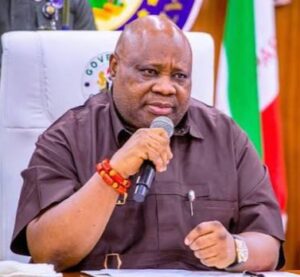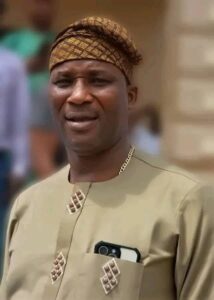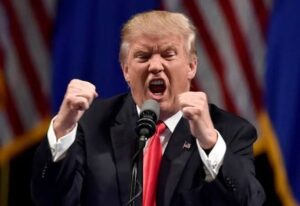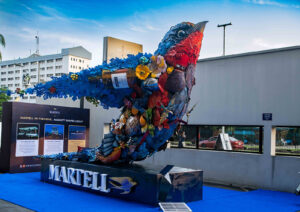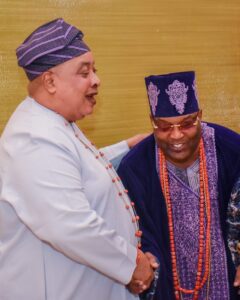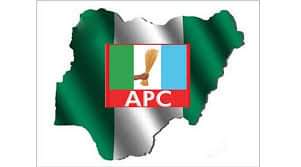
The All Progressives Congress (APC) cannot pretend not to know that its future and survival are on the line. Like their predecessors, the Peoples Democratic Party (PDP), they will continue to live in denial until it is perhaps too late. Having won the elections in 2015, obviously against the run of play and in a spectacular fashion, and repeated the feat a second time in 2019 rather very unscrupulously, the APC is throwing caution to the wind, and enacting probably the most undemocratic practices the country has seen since 1999. But somehow, and incredibly, they seem blissfully unaware of the dangers they face, not to talk of being troubled by the contradictions they themselves have managed to trigger when the democrats among them helped them win the elections only for the disbelieving antidemocratic forces waiting in the wings to seize the reins of government.
No, it was not always clear that the APC had a critical mass of democrats in their midst, enough to project and sustain their ideals and philosophies, at least the ideals and philosophies they have noisily pretended to. But by some incredible display of political sorcery on their part, Nigerians in 2015 believed the lie that the then opposition party boasted enough democrats in their midst to propel Nigeria to great democratic heights and also possessed the capacity to neutralise and reform the Goodluck Jonathan government’s undisciplined approach to governance. APC leaders and their spokesmen were avid political salesmen, and Muhammadu Buhari, their champion at the time, had been recast as a repentant military autocrat and budding democrat. His natural reticence and his inability to frame his new status in persuasive logic surprisingly worried only a few people.
But barely five years into their ironclad rule, the APC has begun to feel invincible, careless and conceited. Like their predecessor PDP, they imagine they will be in office for decades, or even for eons. They were never good at translating their manifestos into actions, and had even become expert at repudiating many of their promises, yet they think they have enthroned an unassailable lead to render the opposition party disoriented and discouraged. Projecting power viciously and remorselessly, they are blinded to their own weaknesses and can’t see how anyone or party or group can unseat them. For, in their view, even the very act of trying to unseat them democratically has now been equated with treason. Their first four years ought to be about reframing their core existential logic and redefining the identity and ambitions of their country. Instead, they have redefined their weaknesses as inconsequential and portrayed their strengths as insurmountable.
More than 90 percent of their leaders are antidemocratic, and their followers have become indistinguishable from the rabble that flattered the PDP into self-destruction. Yet, they have remained unruffled by the chaos around them. In internecine battles and sycophantic dribbles, the party’s leaders and members have also turned intra-party and partisan politics into a needless re-enactment of cultural and sectarian wars and bitter struggles. Right before their eyes, their party, despite the best efforts of their flawed chairman and other patriots, is resembling less and less the party they idealised at their founding in February 2013. They planned to run a more cohesive and disciplined party, far better than the PDP ever contemplated. That ambition has remained unrealised, and may probably be unrealisable. They plotted to disgrace the Jonathan government’s democratic image, describing it as shameful and unbecoming of the country and the largest political party in Africa. Increasingly, they have instead become even more unrepentantly authoritarian.
So, in effect, there is no adroitness evident in running the ruling party, little adherence to intra-party rules and regulations, no commitment to democratic principles, no idolisation of inspiring philosophies, and not even a scintilla of attachment to the kind of enduring reforms that would stand the country in better stead now and in the future. Apart from its sane early days, a higher degree of charlatanry appears to be taking over the party. Once in office, they have become intolerant of criticism, despise the constitution and the rule of law, and a few of their elected and appointed leaders have elevated themselves above the country and its laws. If the APC is to survive, however, they must imbibe the right values and do things properly and differently. They have ruled for less than five years, but the country has become tired of them because neither the economic lot of the people nor their democratic rights have improved in such a way as to endear them to the party. There is a chance of course that the economy might become less unstable and even more amenable to the laws of economics. In spite of them, however, especially given their sometimes contradictory and desultory policies, the standard of living of Nigerians may improve. But it will not be by the margins they have dreamt of or romanticised in their frequent statements to the media, regardless of the untidy and unprincipled reshuffle of their economic teams in a manner destined both to choke an already ponderous presidency and to mystify a president whose grasp of economic issues are at best rudimentary.
Despite the complaints against the PDP, Nigerians were reluctant to see the former ruling party suffer the electoral tragedy that befell them. They brought the tragedy on themselves. Equally, it is in the interest of Nigerians that the APC should do well, help remould the country, and establish the solid foundations for democracy which the PDP failed to lay in its inglorious 16 years in office. The APC seems a little distracted by the politics of 2023, given the way the presidency and a few governors have been jostling for influence and power and positioning one another for the near future. If they are capable of eschewing the partisanship that is undermining both their resolve and the modicum of principles they still clutch to, they must find ways of returning themselves to the founding principles they clumsily projected at birth and which many Nigerians unconsciously but too trustingly embraced.
They imagine that building roads and elongating rail networks, or even growing the economy by a healthy percentage, will help them reposition the party in the minds of the people. This is a futile assumption. Growth may attract accolades in the short run, but it will not entrench the party or even stabilise the country, let alone position it for lasting greatness. No party and no leader in history has achieved the milestones the APC dreams of without engaging the fundamental ideas that conduce to nation or empire building. Without a guiding philosophy, which takes into cognisance the country’s identity and ambitions, no country or empire can achieve greatness — not even the Roman Empire, Greek Empire, Babylonian Empire, Ottoman Empire, and a host of others. They simply must stand for something great, noble and inspiring. And they must possess the discipline to remain faithful to the ideas and philosophies that shape their founding and existence. That is the only way to make a lasting impression. The APC, however, wants to buck that trend despite history’s massive examples. Indeed, more and more, the party seems to be embracing the ignoble principles and distorted ideas that led to the collapse of empires than the noble principles and ideas that led to their rise.
At the moment, there is nothing in the Buhari presidency and the APC that indicates any hunger for a great and ennobling idea or philosophy. There was a whiff of it when the party was founded; but there was no whiff of it when the Buhari presidency was inaugurated. Between 2015 and now, both the presidency and the ruling party have dealt with the issue of ideas and philosophies contemptuously. They will, however, need to deal with them not with the grossness that pollutes the air in the government and the party but with the finesse and enlightenment that energise and inspire a thinking and farsighted government. It is not clear whether they can; all that is known is that they must find a way to do it, to understand and respect the rule of law no matter how painful or injurious to their interest in the short run, and to obey the constitution unreservedly without the chicaneries and subterfuges that have become their lodestar.
Indeed, their legacy and reputation are hinged on their ability to appreciate the factors that predispose a country to greatness and long-term stability. Here the structure of the country is paramount. It is hoped that the Buhari presidency possesses the education to know that a building could not stand if the foundation is weak or inappropriate, or if the structure of the building itself is flawed. Can the Buhari presidency boldly say Nigeria’s structure is sound, and that the problem is just the people’s attitude, as it has often argued? Even the Value Added Tax (VAT) controversy must tell a thinking government that it is misguided in its assumptions and destructive in its conclusions. Raising VAT at this point shows lack of depth and purpose. Much more, however, it also shows how iniquitous the country’s so-called federal structure is — that is assuming the APC and the Buhari presidency still believe in federalism — that they force states which produce and therefore pay VAT to underwrite the slothfulness and inefficiency of states which do not produce goods and indeed specialise in erecting strictures inimical to production.
If the APC and the Buhari presidency can find the discipline and wisdom to get the country’s structure right and learn to obey the laws of the land, they must then find a way to turn their attention to restructuring their party to make it more responsive to the needs of members and the country, away from the grovelling before presidents and governors that shames Nigeria’s democracy. It is a fact that nearly all APC governors are not democrats, as amplified by the atrocious manner they interact with their Houses of Assembly and the judiciary. The president has little interest in democracy and probably can’t even conceptualise it. But they will need to define who they are, what they believe in, and how to find a connection between their identity and beliefs on the one hand and the aspirations and identity of the country on the other hand. The party has always made laws to regulate themselves. But they have often needlessly tinkered with those laws to serve short-term and sometimes nefarious goals. Altogether, increasingly, they have emptied their party of its soul and brutally subordinated its carcass at the federal and state levels to the president and the governors. The APC, like the PDP before it, is now proudly empty of soul and purpose.
To therefore ask the APC to rediscover itself, assuming it ever had a personality that reflects purpose and ideology, may be asking for too much. But except it embarks on that noble search, it will also flounder like the PDP. Indeed, this is the time for the APC to carry out that exercise of self-examination and rediscovery, a time when antidemocratic politicians and officials have virtually swept the party and the presidency off their feet, a time when the constitution is now held in abeyance and tyranny is knocking at the nation’s door, a time when the sectionalists in government and party think only in terms of private, pecuniary and aggrandizing ideas, not national, altruistic ideas. The Buhari presidency will of course not last beyond its constitutional limits, even if it manages to achieve something. But the party will outlive him, just like the critics whom both the party and the presidency detest will outlive them.
The tragedy enveloping the APC is the same tragedy that undid the PDP. When the PDP took office in 1999, it had the misfortune of antidemocratic politicians swiftly taking and occupying the commanding heights of government, and with time, swallowing the party too. Lightning has struck twice, alas, unconventionally in the same place. When President Buhari and his APC won the 2015 elections, they immediately turned over the reins of government to antidemocratic players who are doing horrendously with the country as they please, recriminating and criminalising critics who point out the folly of their ways. Neither Chief Olusegun Obasanjo nor Mallam Umaru Yar’Adua nor Goodluck Jonathan is writing the history of Nigeria under the PDP. Critics and historians are doing the writing. No matter how badly they are badmouthed and hauled before judges for treason and other silly crimes, critics and historians will also write the history of Nigeria under the APC. It is up to the APC to reform or die physically and figuratively.
That death would be inevitable as long as they keep confusing the scaffolding for the building, reshuffling their economic teams in the false hope that brilliant technocrats could atone for the lack of depth and industry assailing the presidency, overlooking the timidity and complicity of the National Assembly as they impotently beg the president to mediate between them and intransigent presidential appointees, and tolerating and refusing to punish bureaucratic perverseness such as was experienced when the secret service invaded the legislature and the executive branch deployed judicial caricatures to overthrow the chief justice. Chief Obasanjo and Dr Jonathan ruled as if there was no future, or that when that future catches up with them they would not be hoist with their own petard. Now the APC and its leaders are displaying the same short-sightedness, believing that the fiefdom they have created will preclude them from paying for the laxity and anarchy they are engendering.
If the country is too timid to ask the APC and the dispirited and distraught PDP what visions of the country they have, and though Nigerians think they voted their government into office but are too deferential to take the presidency to task on their imperious and angry approach to governance, the ruling party itself must try to assemble men and women who, after studying the histories of great empires and kingdoms, can help the party and country envision tomorrow. The party has less than two or three years to remedy the confusion they have enthroned. Few trust them to do anything imaginative, however, especially seeing the way its leading functionaries have talked about and begun to scheme for 2023; but the country has an obligation to hope that the immense damage they have caused the nation can still be addressed, especially considering the manner the PDP imploded after its deserved loss of the presidency.
*First published September 22, 2019







